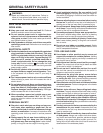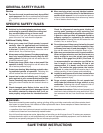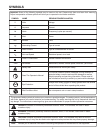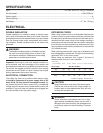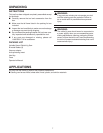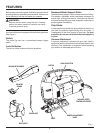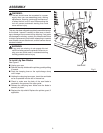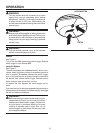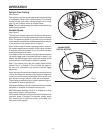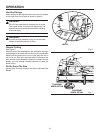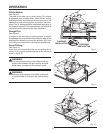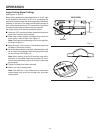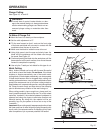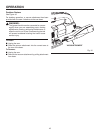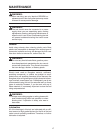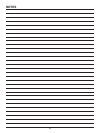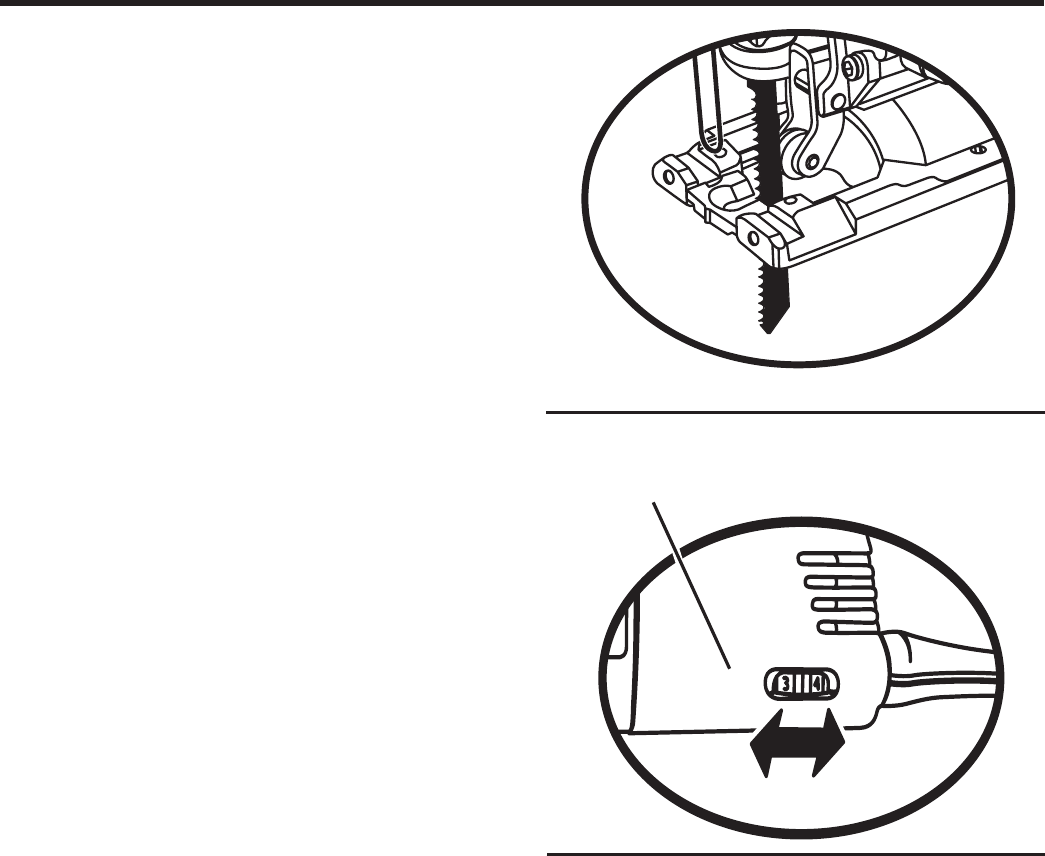
10
11
Fig. 5
OPERATION
Splinter-Free Cutting
See Figure 4.
This saw has a splinter guard to permit splinter-free cutting.
It is especially useful when cutting plywood. This feature
should only be used when making straight cuts or circle
cuts. It is not for bevel cutting or plunge cutting.
Note: The non-orbital setting also helps reduce splintering
when cutting plywood.
Variable Speed
See Figure 5.
The saw has a variable speed control selector designed to
allow operator control and adjustment of speed and power
limits. The speed and power of your saw can be increased
or decreased by rotating the variable speed control selector
in the direction of the arrows shown in gure 5.
Note: Hold the saw in normal operating position and turn
the variable speed control selector to the higher numbers
to increase speed and power. Turn to the lower numbers
to decrease speed and power.
If you desire to lock the switch on at a given speed, depress
the switch trigger, push in and hold the lock-on button, and
release the switch trigger. Next, adjust the variable speed
control selector until the desired speed is reached.
Note: If you desire not to use the variable speed control
selector, turn it to Setting 6. This will allow the speed of
the saw to be controlled by the amount of switch trigger
depression.
Avoid running your saw at low speeds for extended periods
of time. Running at low speeds under constant usage may
cause your saw to become overheated. If this occurs, cool
your saw by running it without a load and at full speed.
The following guidelines may be used in determining cor-
rect speed for various applications:
LOW speed (Settings 1 and 2) is ideal when minimum speed
and power is required, for example, starting cuts.
MEDIUM speed (Settings 3 and 4) is suitable for cutting
hard metals, plastics, and laminates.
HIGH speed (Settings 5 and 6) produces best results when
maximum power is required, for example, cutting wood.
Soft metals such as aluminum, brass, and copper may
also require high speeds.
VARIABLE SPEED
CONTROL SELECTOR
Fig.4



